Scaling digital health innovations from Singapore to the region
Discover the pathway to success in this report from EDB and ACCESS Health International
Fast-moving healthtech startups such as Biorithm and Savonix share insights on how they have made inroads into SEA, overcoming common challenges faced by startups in this thriving region.

With healthcare systems worldwide stretched to their limits with COVID-19, consumers and healthcare providers in Southeast Asia (SEA) are turning to digital healthcare for novel, cost-effective solutions.
This creates an eager market for entrepreneurs with digital health innovations. From AI-powered diagnostics and data-driven public health, to telehealth and remote monitoring that connect patients to doctors, these technologies are transforming the landscape of healthcare in the region.
To help healthtech startups navigate this complex, but growing region, healthcare thinktank ACCESS Health Southeast Asia collaborated with the Singapore Economic Development Board (EDB) on the Scaling Digital Health Innovation in Asia report, where authors interviewed 26 digital health innovation suppliers, demand drivers and enablers.
We share a few insights from the report, as well as from rising startups in SEA, who have successfully navigated pitfalls faced by healthtech startups in the region.

Discover the pathway to success in this report from EDB and ACCESS Health International
Singapore: A launchpad for healthtech startups
For innovators new to the region, “going to market” can be daunting.
Scaling innovations across markets successfully in this region is not simple, with significant differences in health systems, reimbursement models, and population needs. With a population of over 600 million, SEA is a dynamic region consisting of ten economically, culturally and commercially distinct nations.
To scale across this fragmented landscape, a one-size-fits-all approach simply does not work, and knowing where to start is key. Healthtech startups looking to take on this diverse region are choosing Singapore’s digital health ecosystem as their gateway to this market.
Ms Pin Chin Kwok, Chief Business Officer of brain health startup Savonix, shares that for startups,
“Singapore provides a window into Asia that gives insights on which markets in Asia to select, how to get into them and who you can partner.”


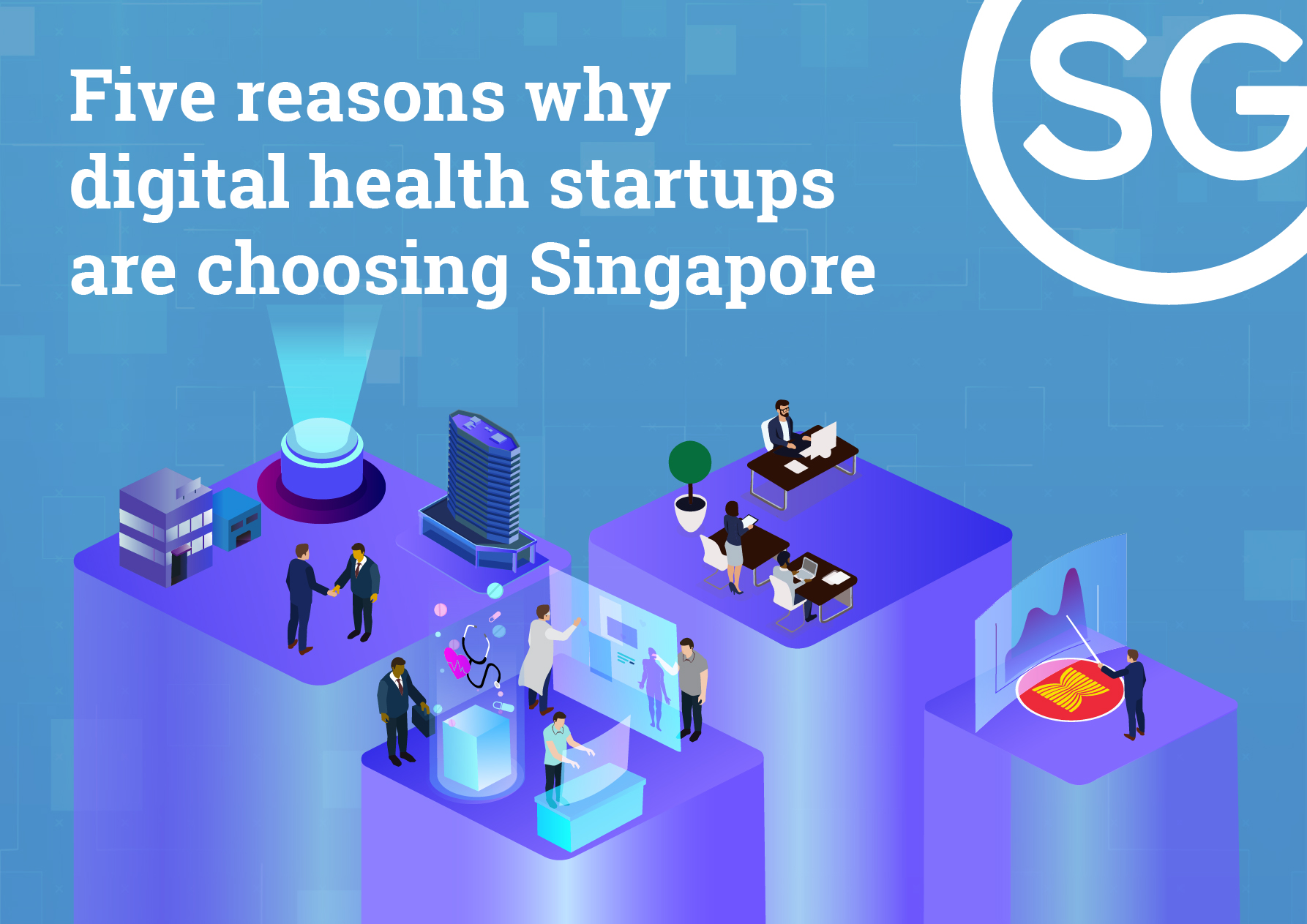
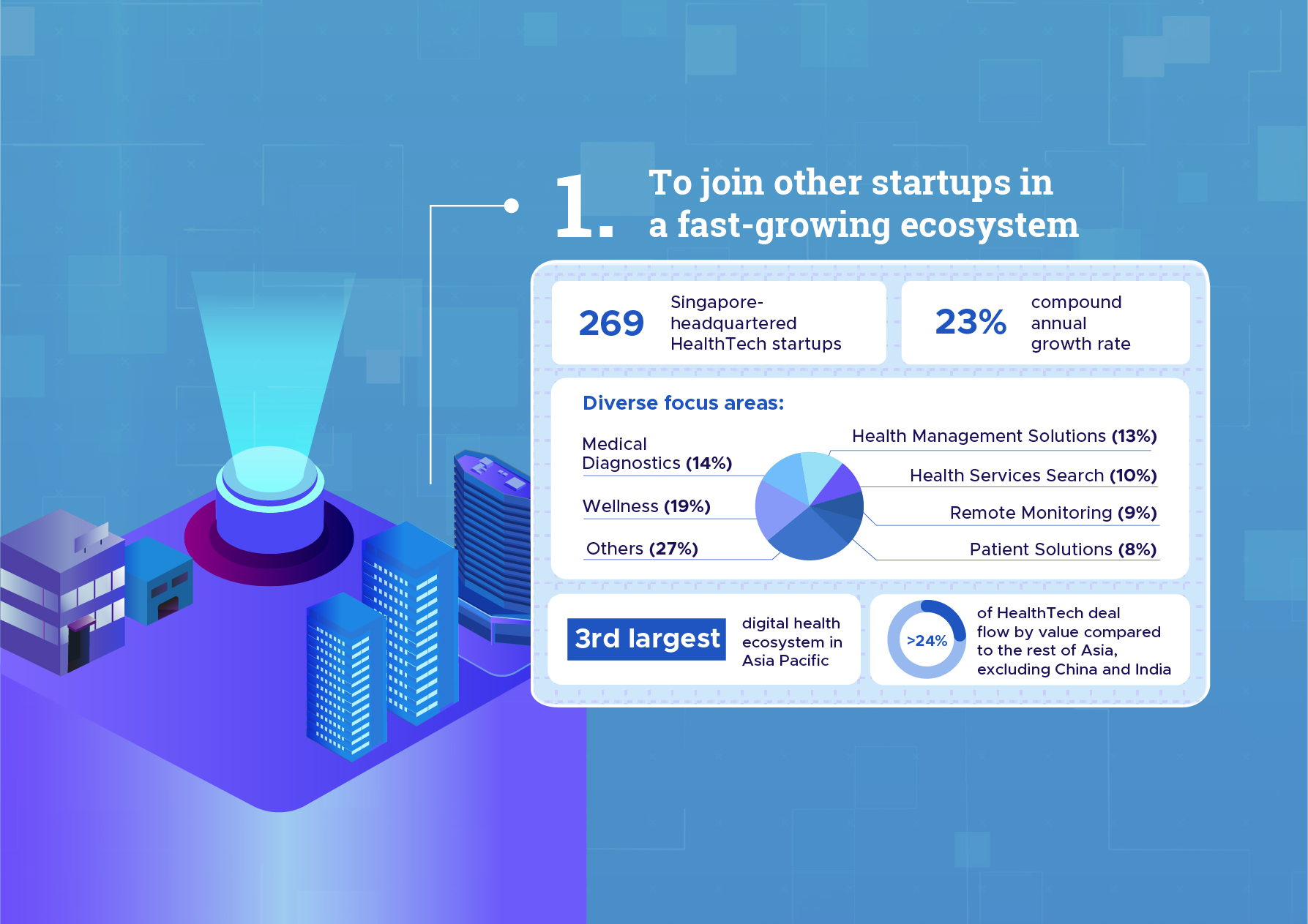
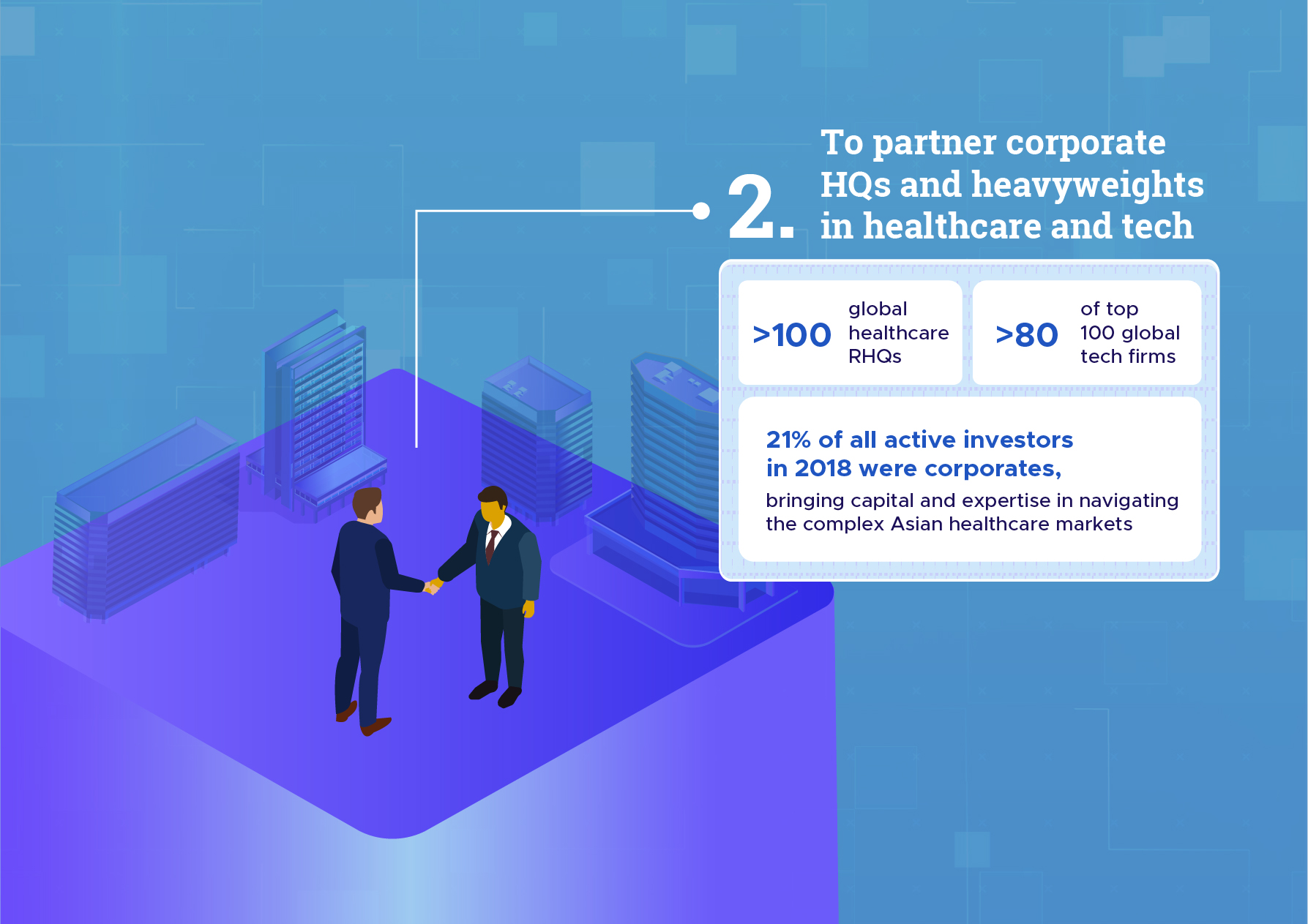
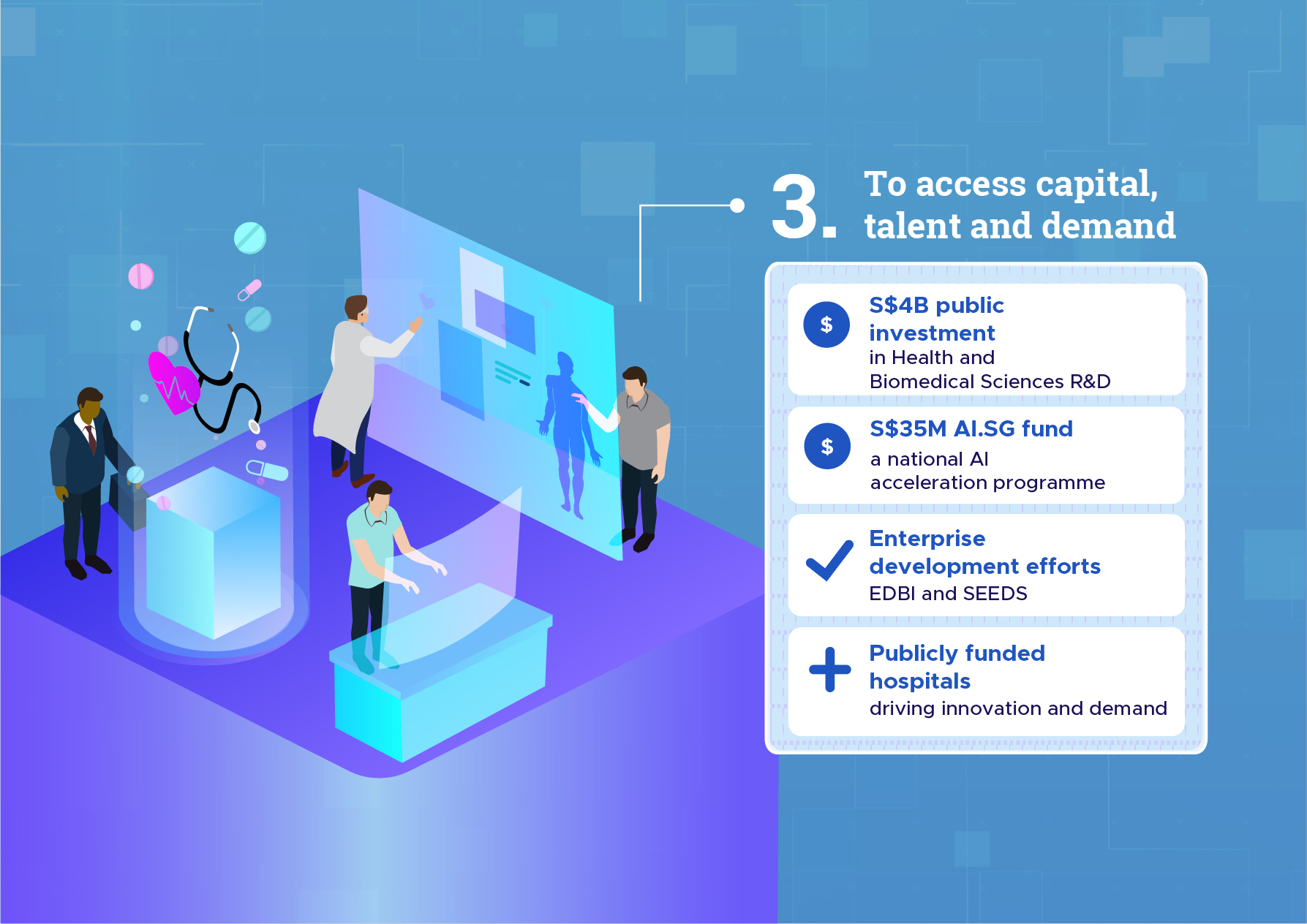
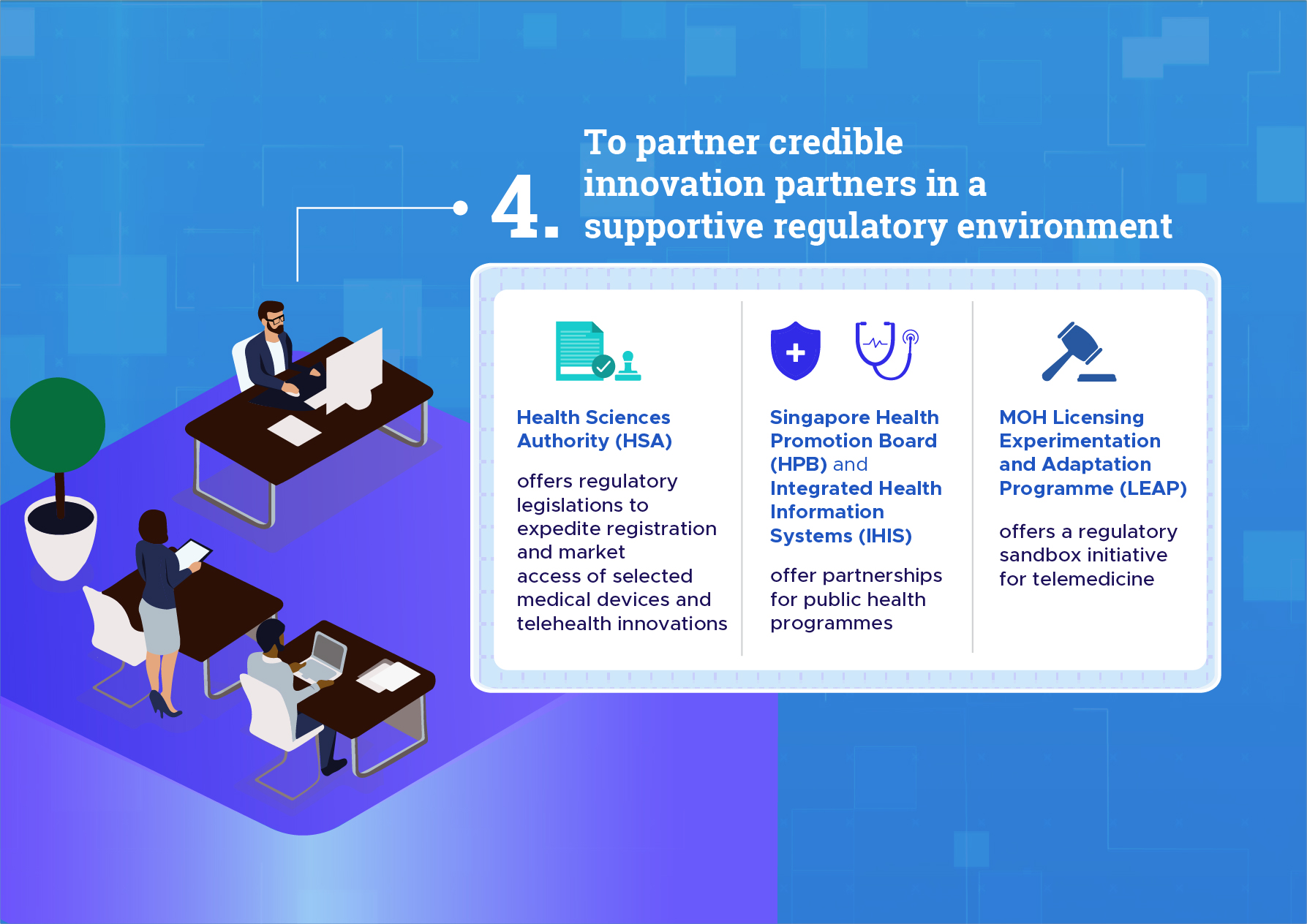
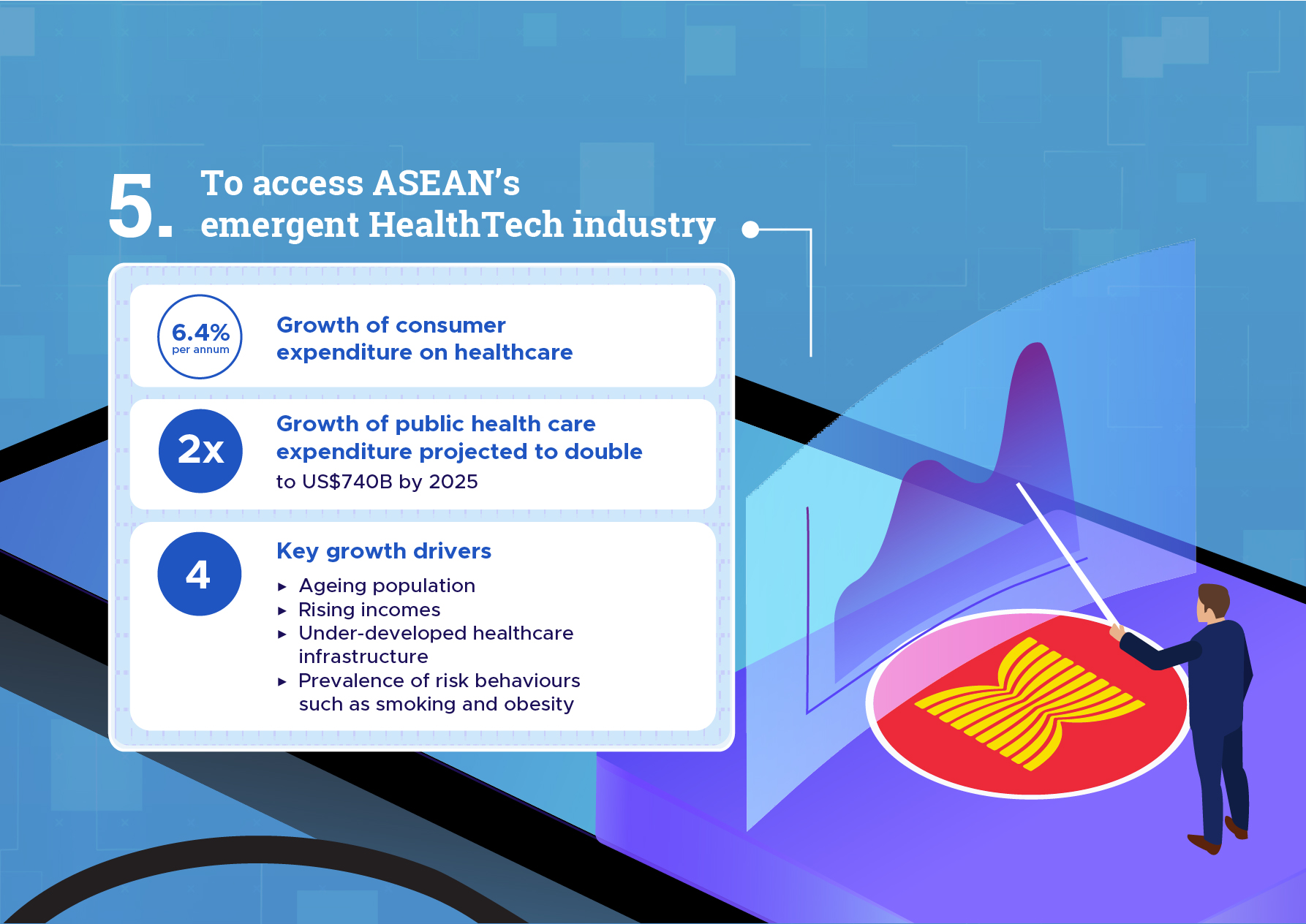
A strong business environment is a key draw for startups developing their technologies and beginning their regional scaling journey. Singapore’s prominence as a leading healthcare innovation hub also means that its in-country and regional networks will pave the way for commercialisation across markets.
“Singapore’s thought leadership in standardisation of regional regulations really helps startups scale into the region,” shares Mr Amrish Nair, Chief Executive Officer of Biorithm, a Singapore-based medical signal processing startup.
Insights from the region’s fast-moving healthtech startups
In the report by ACCESS Health International and EDB, authors identified a four-step pathway that startups across SEA are taking to scale successfully:

This infographic provides a quick guide on navigating challenges while scaling from Singapore into the region.
Savonix: Rapid needs identification
A brain health startup that aims to create “a world without dementia,” Savonix successfully scaled into Asia in 2017 through a base in Singapore. For Savonix, consumer needs identification was top of mind.
“Value propositions in healthcare are extremely difficult to pin down and prove,” acknowledges Ms Kwok, “we had to dig deep to figure out the product-market fit.”
According to the 2019 ACCESS Health and EDB report, 73 per cent of startups report that not defining customer pain points at early stages is a key challenge to scaling.
Collaborating with Singapore-based incubator Lumenlab provided Savonix with multicultural insights and user bases for testing and validation. Lumenlab’s test-and-learn expertise allowed Savonix to test if their solution was solving for a valid and well-defined need.
“Will consumers in China want this product? Will homecare companies want to use it?” These stages of inquiry, shares Ms Kwok, were critical for Savonix to strategically and rapidly navigate the diversity of healthcare systems and payor models across the USA, Japan and China. For Savonix, a base in Singapore helped provide clarity on target markets, and paved the way for viable PoCs and business models, setting it up for a win.
Biorithm: Securing PoC success
Singapore-based startup Biorithm combines wearable sensors and data analytics to remotely monitor pregnancy vital data. For Biorithm, partnerships with key opinion leaders (KOLs) was crucial for its success.
“SEA is heavy on culture. You must nail your value propositions and look at what they mean to different people,” shares Mr Nair.
Attention to sociocultural contexts helped Biorithm pitch its product to directly address market demands, successfully navigating payor dynamics, users’ perceived value and regulatory barriers in the region. For example, Biorithm partnered KOLs from Singapore, Australia and the United Kingdom to design its PoC. Through initial pilots of its solution on different patient profiles in Singapore, Biorithm was able to gather evidence on the effectiveness of its solutions to replicate and enhance its solution in markets with similar sociocultural contexts.
“Building local teams help you understand the environment better. If a market is a priority for you, you’ve got to be in it to understand it,” Mr Nair shares.
UCARE.AI: Guaranteed commercial roll-out
UCARE.AI, a Singapore-based startup applying artificial intelligence (AI) in healthcare, leveraged public-private partnership for buy-in and successful commercialisation.
UCARE.AI partnered with private healthcare provider Parkway Pantai, which adopted its AI-powered prediction tool within four months of a successful PoC.
“It is important to have a clinician champion who will push for the adoption of your solution,”
shares Mr Yi Chung Law, the Deputy Director at Ministry of Health Singapore’s Office for Healthcare Transformation.
For UCARE.AI, Singapore provided a base from which to actively identify and engage demand drivers and decision-making processes, including government hospitals and private health groups in Singapore and across the region.
The future of digital healthcare
While navigating a complex, multi-stakeholder digital health space may be daunting for startups, the SEA market offers vast opportunities. If startups are bold enough to take on SEA, the region’s talent, capital and demand promise immense rewards.